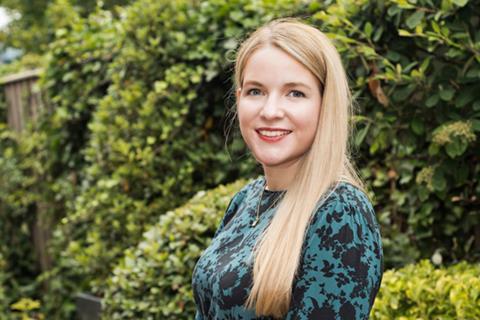Associate within the health inquests and advisory team, Nottingham

Growing up, I could see the role of vital legal frameworks in supporting people with issues relating to housing, tenancy and financial disputes. I took a keen interest in debates at school and started committing persuasive arguments to letters to manage some of the injustices I perceived on behalf of friends, charities and in my own life. This inspired me to pursue a legal career.
Going to university was an alien concept to me, as neither of my parents had attended. I had an unintended gap in my studies following a change in my housing and financial circumstances, and left school without A-levels. I took a job as a business apprentice, and it was not too long before I searched for opportunities in this role to explore my interest in the law. I took on a fascinating role as a member of a learner panel, sponsored by a government department, which was consulted on relevant bills making their way through parliament. I eventually took the plunge and did a part-time access course in legal methods at Birkbeck to secure my place on an undergraduate degree. I studied law at the University of York on a course that taught students in simulated law firm environments. This played to my strengths, as someone who learns better through practical application.
I applied for a scholarship from the Law Society’s Diversity Access Scheme (DAS) after it was suggested by my law school tutor. I recall often feeling like an imposter and fighting against thoughts of whether I was the right fit for a legal career as I had not followed a traditional path of A-levels to university. This seemed like a welcoming programme providing an invaluable springboard into the legal world.
My successful application to the DAS was a real highpoint and helped fuel my motivation to succeed in pursuing a career in law. It was the external stamp of reassurance to keep persevering and a true demonstration that the legal profession values people with the raw passion and skills to be a solicitor, from all walks of life.
'Being neurodivergent can be a real strength, if you are given the right support'
The DAS aims to address three key barriers to fair access to a career as a solicitor: finance, professional contacts and work experience. Funding for the Legal Practice Course and access to these opportunities allowed me to hone skills for the legal world as well as network with other solicitors and peers. On completion of the scheme, I secured a legal assistant role in Browne Jacobson’s health law team. As a DAS alumna, I’m one of the Law Society’s Social Mobility Ambassadors, and I support candidates as an application screener, judge and mentor.
I share my own story to empower aspiring solicitors from all walks of life to build self-confidence, so that they can succeed and thrive in the profession. Many aspiring solicitors from non-traditional backgrounds do not always have the innate confidence or skills to make their experiences relevant when answering more traditional assessment questions around legal work experience and competencies. Diversity is my strength and the profession’s strength, if it attracts the right candidates.
My desire to disclose dyslexia, dyscalculia and Irlen syndrome is prompted by my wish to reclaim the narrative around neurodiversity. Revealing my disability enables me to talk with colleagues or supervisors about support that allows me to perform my best. For example, I have a preference for written instructions, use assistive technology and seek assistance for tasks requiring intensive notetaking.
Browne Jacobson’s receptiveness to my dyslexia and reasonable adjustments has been hugely important. Being neurodivergent can be a real strength, if you are given the right support. For example, I can problem solve, think visually, recognise and pick out trends with greater ease, and I’m emotionally aware. With that comes a degree of creative problem-solving, analytical skills, emotional understanding and empathy, which complements the work I do as a health and social care solicitor dealing with patients, their families and public sector bodies in the Court of Protection.
When neurodivergent employees find roles that reward their strengths and are supportive of their differences, they are highly loyal to their employer. They are more likely to be retained when there is a supportive environment. If you haven’t taken steps to consider this untapped talent pool, then there is a clear incentive to attract, recruit and retain neurodiverse individuals when it comes to looking at the dynamic future of legal services.
Neurodiversity Celebration Week runs from 13 to 19 March































No comments yet